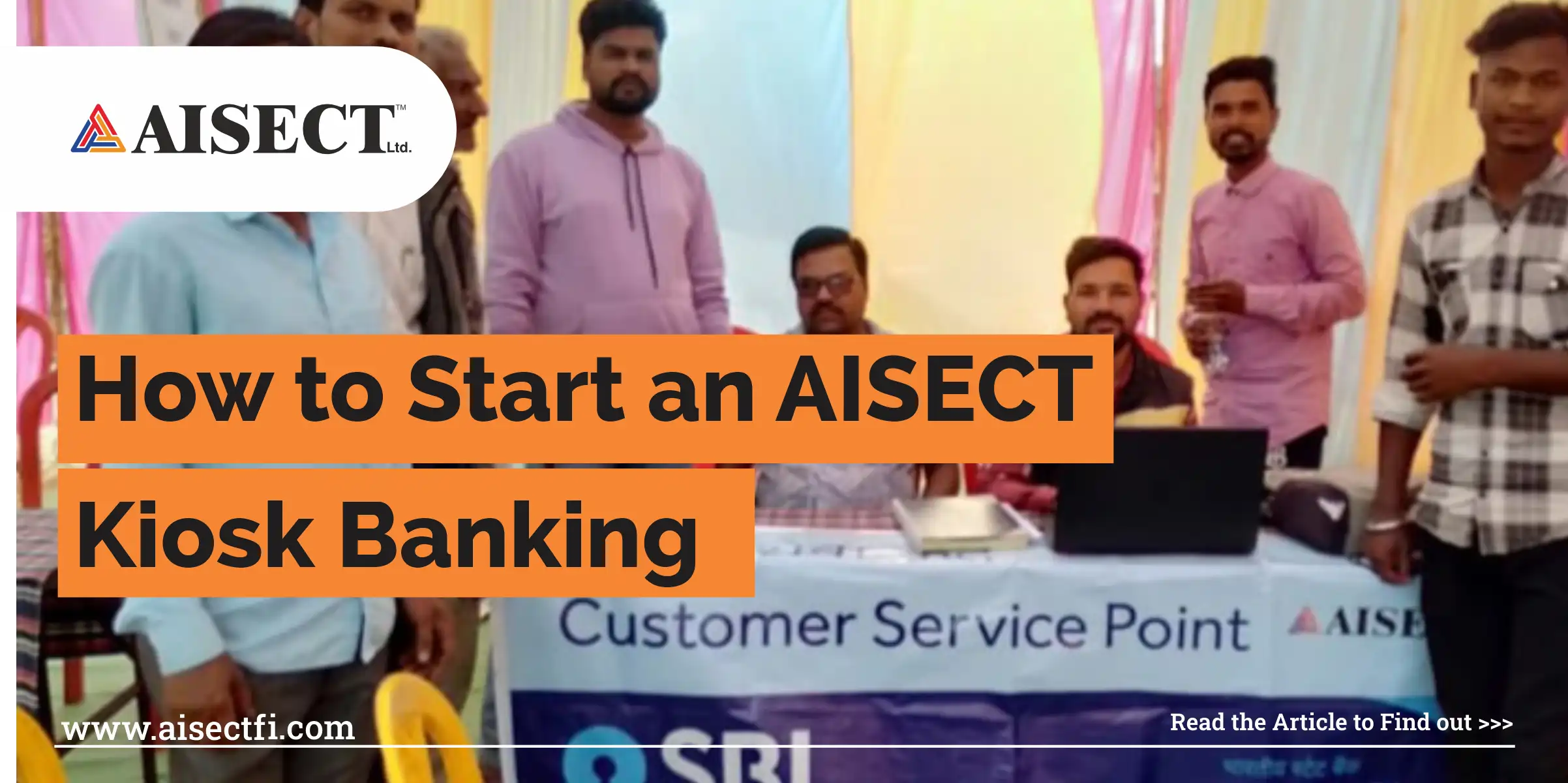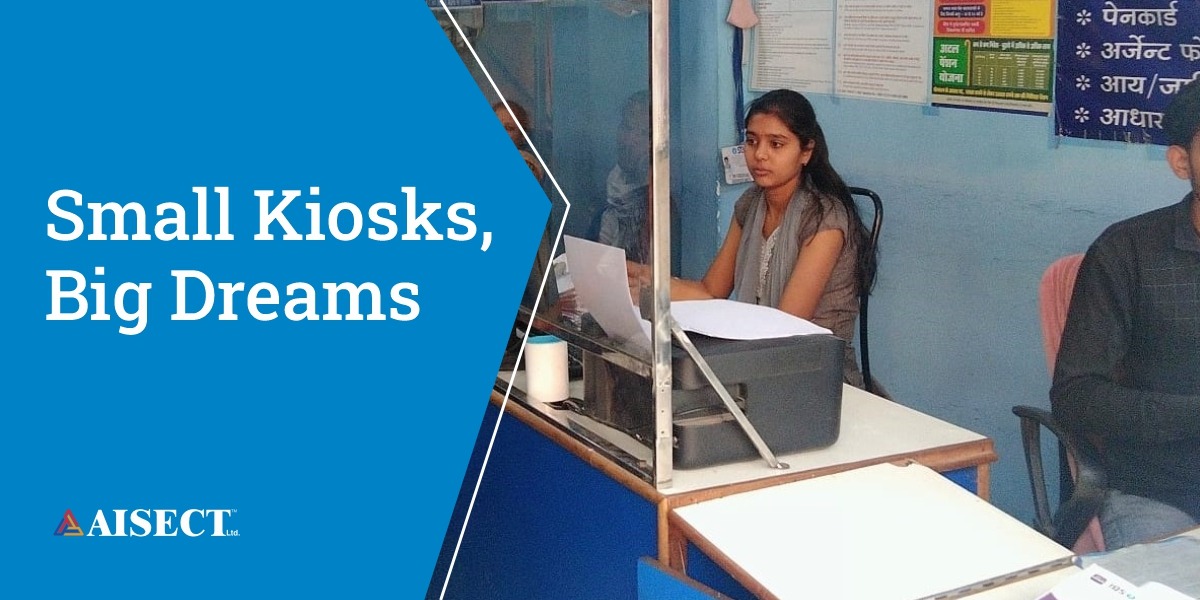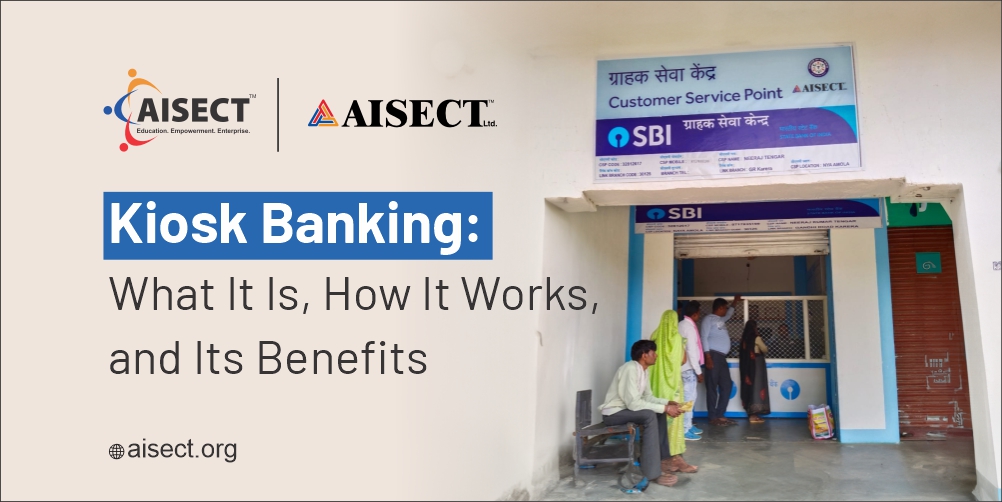Introduction
AISECT was established in the year 1985 to bridge the digital divide gap between the semi-urban and rural masses and build a capable generation. The organisation aspires to empower the next generation with the right skills as well as exposure to cultural identities. AISECT is responsible for transforming lives by skilling and upskilling individuals, digitally enabling services for India, providing quality and affordable higher education, helping in e-governance, promoting Indian art and culture, expanding the reach of financial services and finally connecting youth with employment, livelihood and entrepreneurship opportunities.
Financial inclusion’s concept generally refers to the concept of providing accessible and affordable financial services to all individuals and businesses regardless of their financial situation or geographic location. With the help of financial inclusion, individuals, even those who are excluded from the traditional banking system, can access affordable and reliable financial services or products. These include sustainably delivered and responsible financial products such as savings accounts, insurance, credit and payment solutions.
The importance of financial inclusion generally stems from the need to overcome crippling financial issues caused by the lack of access to basic financial services. It also stems from the need to provide monetary storage, payment management and cash flow, savings accumulation, investment and credit access. In addition to that, it also stems from the need to increase job opportunities and quality of life caused by the issue of financial exclusion of small businesses or underserved individuals.
The Unbanked Challenge
Do you know, as per a World Bank report India’s financial inclusion rate rose from 25% in 2008 to over 80% among adults in the past 6 years?
Unbanked can be considered an informal term for adults who do not use banking institutions or banks in any capacity. While often an issue in the developing world, there are also pockets of unbanked adults in developed regions including the US. Unbanked people generally pay for things in cash or else purchase prepaid debit cards or money orders. Unbanked people also typically do not have pensions, insurance or any other type of money-related service that’s professional in nature. They may take advantage of alternative fiscal services such as check cashing and payday lending, if such services are available to them.
Being unbanked means things like paying bills and cashing checks are more time-consuming and costly. Those who are unbanked often have to rely on check cashing services to cash paychecks because of the unavailability of cash deposits. They also have to pay bills through money orders which adds expense and time to the process. Not having a debit card means they have to carry cash for everyday expenses such as groceries and gas. If you lose your cash or someone steals it, there is no way to get it back. Pre-paid debit cards can be considered an option but they carry high usage fees and are pretty hard to manage.
The Collaboration
According to statistics, India’s financial inclusion index has improved to 56.4% from 53.9 in the previous year 2021.
With AISECT’s vision to strengthen financial inclusion in India, the need for financial inclusion across the country, and the fact that the organisation is a partner offering synergistic services via AISECT Multi-purpose ICT centres located in rural and semi-urban areas, Financial Inclusion was added to the range of services provided by AISECT in 2009, in collaboration with the State Bank of India (SBI) with the following goals:
- To provide a wide range of services to the underprivileged including savings, credit as well as other services of a financial nature in an effective manner, particularly in areas that are unbanked or not tapped with financial inclusion.
- The goals are to ensure greater financial inclusion and expand the reach of the bank in tandem with the need to expand the market share in semi-urban and rural areas significantly.
- Ensuring greater financial inclusion and expanding the reach of the bank in accordance with the need to expand market share in rural and semi-urban areas significantly.
Empowering communities
AISECT FI has played a crucial role in unlocking credit availability in rural areas. The organisation has worked effortlessly to bridge the gap between formal fiscal institutions and rural residents. They have achieved this by providing access to credit and other financial services. The impact of AISECT FI in unlocking credit access in rural areas can be seen in different ways:
- AISECT FI’s efforts to promote small business development and entrepreneurship have led to the creation of jobs in rural areas. Through the provision of credit to rural residents to grow or start a business, AISECT FI has helped stimulate economic growth and create new job opportunities in these regions.
- It has also significantly contributed to the overall improvement in the standard of living of rural residents. Through the provision of banking in the unbanked regions, AISECT FI is helping to improve the social and economic well-being of rural communities.
Challenges
Lack of access to financial services
A primary challenge of financial inclusion is a limited or lack of access to financial services. It is estimated that 1.7 billion adults do not have access to financial services and 1.4 billion adults remain unbanked and lack a bank account. The high cost of financial services and physical distance from financial service providers are some of the factors contributing to this.
Low Financial Education and Literacy
Another major challenge to financial inclusion is low financial education and literacy. Financial literacy is crucial for equipping individuals with the skills and knowledge to make informed financial decisions and effectively utilise fiscal services. This is one of the leading forces which affects the ability of people to access financial services in rural areas.
Conclusion
In conclusion, AISECT which was established in 1985 stands as a transformative force in the socio-economic landscape of India. Through its collaboration with the SBI, AISECT has played a significant role in advancing financial inclusion, particularly in semi-urban and rural areas. The organisation’s commitment to empowering rural communities is evident in its approach ranging from skill development to accessing credit in rural regions. By fostering entrepreneurship and small business development, AISECT FI has not only stimulated economic growth but also contributed to job creation and an overall improvement in the standard of living for rural residents.




